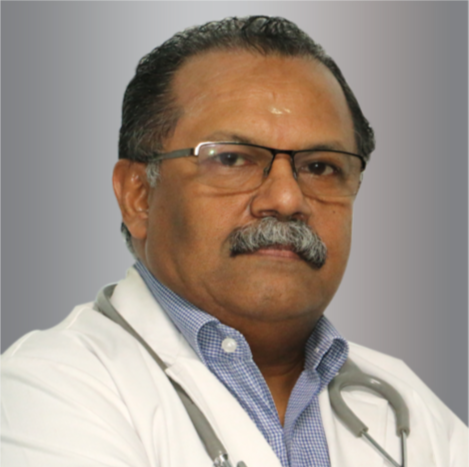Best Oncologist in Thrissur
Thrissur is home to several skilled and experienced oncologists who provide exceptional care and treatment for cancer patients. Among them, Dr. Bibin Francis stands out for their expertise, compassion, and advanced approach to oncology.
Why Choose an Oncologist in Thrissur?
- Expertise in Advanced Cancer Care: Thrissur oncologists specialize in various types of cancer treatments, including chemotherapy, radiation therapy, immunotherapy, and surgical oncology.
- Patient-Centered Approach: Oncologists here prioritize patient well-being, offering customized treatment plans tailored to individual needs.
- World-Class Facilities: Equipped with cutting-edge technology, Thrissur hospitals provide accurate diagnostics and effective treatments.
- Affordable Treatment Options: Compared to larger cities, Thrissur offers high-quality cancer care at more reasonable costs.
For those seeking care in Thrissur, consulting a reputed oncologist ensures comprehensive treatment and support.
Who is a Suitable Candidate to Consult an Oncologist?
Individuals who should consider consulting an oncologist include:
- Those with a confirmed diagnosis of cancer requiring specialized treatment.
- Individuals experiencing unexplained symptoms such as persistent fatigue, weight loss, or abnormal bleeding.
- Patients referred by their primary care physician for advanced cancer care or diagnosis.
- People with a family history of cancer, especially hereditary types, who may need genetic counseling or screening.
- Individuals undergoing or considering treatments like chemotherapy, radiation, or surgery for cancer management.
- Patients requiring second opinions on cancer treatment options or diagnoses.
- Anyone with concerns about unusual lumps, growths, or other potential signs of cancer.
Consulting an oncologist ensures access to expertise in diagnosing, treating, and managing cancer effectively.
How Much Does Cancer Treatment Cost?
The cost of cancer treatment can vary greatly depending on several factors such as the type of cancer, the treatment method, and the healthcare facility. On average, cancer treatment in India can range from ₹1,00,000 to ₹10,00,000 or more, depending on the specifics of the case.
Factors Affecting Cancer Treatment Costs:
- Type of Cancer: Some cancers may require more intensive or long-term treatment, increasing costs.
- Treatment Method: The choice between chemotherapy, radiation therapy, surgery, immunotherapy, or a combination of treatments affects the total cost.
- Hospital Location and Facility: Major hospitals in metro cities may have higher treatment fees compared to regional hospitals, though the quality of care remains top-notch in many centers in cities like Thrissur.
- Duration of Treatment: Ongoing treatments such as chemotherapy or radiation therapy over months can add up significantly.
Typical Costs Include:
- Diagnostic tests (e.g., scans, biopsy)
- Hospital or clinic fees
- Surgery (if required)
- Chemotherapy and/or radiation therapy
- Medications and supportive care
- Post-treatment consultations and follow-ups
It’s essential to consult with a healthcare provider to understand the specific cost breakdown for cancer treatment and to check if insurance coverage applies. Many hospitals also offer financing plans or assistance for cancer treatment.
What Should I Expect During a Consultation for Cancer Treatment?
During your cancer treatment consultation, you can expect to discuss:
- Your medical history: This includes any past illnesses, surgeries, or conditions that might impact your treatment.
- Symptoms: Discussing the symptoms that prompted you to seek care and any changes you’ve noticed.
- Family history: Any genetic predisposition or family history of cancer.
- Current medications: This includes prescription drugs, over-the-counter medications, vitamins, herbal supplements, and lifestyle habits like alcohol, tobacco, or recreational drug use.
- Previous treatments: Information about any past cancer treatments or surgeries you’ve had.
Your oncologist may also:
- Evaluate your general health: Assessing your overall health and reviewing any pre-existing conditions that could affect cancer treatment.
- Perform diagnostic tests: This may include blood tests, imaging scans (like CT, MRI, or PET), biopsies, or other tests to confirm the diagnosis and stage of the cancer.
- Examine the cancerous area: If applicable, your oncologist will examine the tumor or affected area to assess its size, spread, and impact on surrounding tissue.
- Discuss treatment options: The oncologist will explain the different treatment approaches (e.g., surgery, chemotherapy, radiation, immunotherapy) based on your specific diagnosis.
- Discuss likely outcomes: The consultation will also include a discussion of treatment goals, prognosis, and potential side effects or complications.
- Discuss anesthesia or sedation: If surgery is involved, the oncologist will explain the anesthesia process and related considerations.
The consultation is an essential time to ask your oncologist questions. Be sure to clarify any doubts about your diagnosis, treatment options, or what to expect during treatment. It’s completely natural to feel some anxiety, and it’s important to communicate openly with your oncologist about any concerns you may have.
Feel free to bring a list of questions or concerns to ensure all aspects of your treatment are thoroughly understood.
What Questions Should I Ask My Oncologist About Cancer Treatment?
Use this checklist as a guide during your cancer treatment consultation:
- Are you board-certified in oncology?
- What is your experience in treating my type of cancer?
- How many years have you been practicing oncology?
- Do you have hospital privileges to perform cancer treatments? If so, at which hospitals?
- Is the treatment facility accredited by a nationally- or state-recognized accrediting agency?
- Am I a good candidate for the treatment options you are recommending?
- What will be expected of me during the treatment process to ensure the best outcomes?
- Where will the treatment take place, and what type of facilities will be used for my care?
- What treatment options do you recommend for my condition?
- How long will my treatment plan last, and what kind of support or assistance will I need during this period?
- What are the potential risks and side effects of the treatments you’re suggesting?
- How are complications or side effects handled during the treatment?
- What should I do if I am not satisfied with my treatment results?
- Do you have case studies or before-and-after results from other patients with similar conditions, and what results can I expect?
These questions will help you understand your treatment options, the process, and what you can expect during and after cancer treatment. Don’t hesitate to ask for clarification on anything you’re uncertain about.
What Are the Risks of Cancer Treatment?
The decision to undergo cancer treatment is deeply personal, and you will need to weigh the potential benefits against the risks and complications. Understanding the possible risks helps you make an informed decision about your treatment plan.
Here are some of the risks associated with cancer treatment:
- Anesthesia risks: Complications related to anesthesia, especially for surgeries or certain therapies.
- Infection: Infections can occur due to treatments like chemotherapy, surgery, or radiation, which weaken the immune system.
- Bleeding: Some treatments, especially surgeries or biopsy procedures, can result in excessive bleeding.
- Organ damage: Cancer treatments like radiation or surgery may affect surrounding organs or healthy tissue.
- Pain: Pain from treatment side effects, surgery, or discomfort during chemotherapy or radiation may persist.
- Fatigue: One of the most common side effects of chemotherapy, radiation, and other treatments.
- Nausea and vomiting: Often experienced as side effects of chemotherapy or radiation therapy.
- Hair loss: Chemotherapy can cause temporary or permanent hair loss, depending on the type and dosage.
- Lymphedema: Swelling that can occur after certain types of cancer treatment, particularly if lymph nodes are removed.
- Nerve damage: Certain treatments can damage nerves, leading to numbness or tingling, especially in the hands and feet.
- Scarring: Surgery may leave permanent scars or changes in the appearance of the treated area.
- Secondary cancers: In some cases, treatments like radiation or chemotherapy can increase the risk of developing another cancer in the future.
- Cardiovascular complications: Some treatments, particularly certain chemotherapy drugs, can increase the risk of heart problems.
- Pulmonary issues: Some treatments, such as certain types of chemotherapy, can affect the lungs, causing long-term breathing issues.
- Blood clots: Some treatments can increase the risk of developing blood clots, leading to serious complications like deep vein thrombosis (DVT).
These risks, along with others, will be thoroughly discussed with your oncologist before treatment begins. Make sure to ask any questions you may have to fully understand the potential outcomes and how they relate to your personal health situation.
How Should I Prepare for Cancer Treatment?
When preparing for cancer treatment, you may be asked to take the following steps to ensure the best possible outcome:
- Get lab testing or a medical evaluation: Your oncologist may order tests to assess your overall health and ensure you are ready for treatment.
- Take certain medications or adjust your current medications: You may need to start specific medications to support your treatment or adjust any current prescriptions to avoid interactions.
- Stop smoking: Smoking can hinder recovery and interfere with certain treatments. Quitting is highly recommended before starting your treatment.
- Avoid taking aspirin, anti-inflammatory drugs, and herbal supplements: These can increase the risk of bleeding or interfere with your cancer treatment, so it’s essential to avoid them before and during treatment.
- Discuss your treatment plan openly: The success of your treatment depends on how well you follow your oncologist’s instructions. Be prepared to discuss your medical history, lifestyle, and expectations.
- Arrange transportation: Depending on the type of cancer treatment, you may need to arrange for someone to drive you to and from the treatment facility. In the case of surgery or intensive treatments, you may require assistance for the first few days post-treatment.
It is important to follow all pre-treatment instructions from your oncologist to ensure the safety and effectiveness of your cancer care plan. Don’t hesitate to reach out with any questions or concerns prior to your treatment.
What Are the Steps of Cancer Treatment?
Cancer treatment typically involves a series of steps, depending on the type and stage of cancer. Here are the general steps:
- Initial Consultation and Diagnosis
- The oncologist will review your medical history, conduct physical exams, and order diagnostic tests (such as biopsies, imaging tests, blood tests) to confirm the diagnosis and stage of cancer.
- Treatment Planning
- Once a diagnosis is confirmed, your oncologist will discuss the treatment options available. This may include surgery, chemotherapy, radiation therapy, immunotherapy, or targeted therapies, depending on your specific case.
- Anesthesia (for surgery)
- If surgery is part of the treatment plan, anesthesia will be administered to ensure comfort. This may be general anesthesia or local anesthesia, depending on the procedure.
- Surgical Procedure (if applicable)
- In cases where surgery is required, the surgeon will remove the tumor or affected tissue. Surgical techniques vary depending on the type and location of the cancer. The surgeon may use minimally invasive techniques or open surgery.
- Chemotherapy or Radiation Therapy
- For cancers that spread or need additional treatment, chemotherapy or radiation therapy may be used. Chemotherapy uses drugs to kill cancer cells, while radiation uses high-energy rays to target and destroy cancer cells.
- Targeted or Immunotherapy (if applicable)
- Targeted therapy focuses on specific molecules involved in cancer growth, while immunotherapy boosts the body’s immune system to fight cancer more effectively.
- Follow-up Care
- After treatment, your oncologist will schedule regular follow-up appointments to monitor your recovery, detect any recurrence of cancer, and address any side effects or complications.
The specific treatment plan will be tailored to your condition, and your oncologist will guide you through each step of the process to ensure the best outcomes.
What Should I Expect During My Cancer Treatment Recovery?
During your cancer treatment recovery, the process will depend on the type of treatment you received (surgery, chemotherapy, radiation therapy, etc.). Here’s what you can generally expect:
- Post-Treatment Care (Surgery Recovery)
- After surgery, your doctor will apply dressings or bandages to your incisions, and you may be given special garments to support the treated area and minimize swelling.
- In some cases, small drains may be placed to remove any excess fluid or blood from the surgical site.
- Medications and Instructions
- You will be prescribed medications to manage pain, prevent infection, and aid healing. Be sure to follow your oncologist’s advice regarding when to take medications and any topical treatments.
- Your doctor will give you specific instructions on how to care for the surgical site, manage any drains, and recognize any signs of complications.
- Follow-up Appointments
- Follow-up care will include routine visits to monitor your recovery, address side effects, and evaluate the effectiveness of the treatment. The oncologist may order further tests to ensure there is no recurrence of cancer.
- When to Seek Medical Attention
- It’s important to contact your doctor if you experience unusual symptoms like fever, shortness of breath, chest pain, or unexpected bleeding. These could be signs of complications that need immediate attention.
- Resuming Normal Activity
- You’ll likely need some time to rest after treatment. Your oncologist will give you advice on when it’s safe to resume normal activities and exercise.
- Take care not to exert pressure on the surgical site, and avoid actions that could lead to strain or injury.
- Maintaining Your Recovery
- The success of your recovery will depend on your adherence to your oncologist’s instructions. You may need to avoid certain substances (such as smoking or alcohol) and maintain a stable weight to help preserve the results of your treatment.
- Long-Term Recovery
- Depending on your treatment, recovery times may vary. For some treatments like chemotherapy or radiation, side effects like fatigue may persist for a while. However, many patients see significant improvement over time.
Make sure to follow all medical advice closely and keep a communication line open with your healthcare provider throughout the recovery process to ensure the best results.
What Results Should I Expect After Cancer Treatment?
The results of cancer treatment vary depending on the type of cancer, the stage at which it was diagnosed, and the treatment approach used. However, here’s a general overview of what you can expect after undergoing cancer treatment:
- Immediate Results
- Following cancer treatment, whether it’s surgery, chemotherapy, or radiation, you may notice immediate changes such as a reduction in tumor size or improvements in symptoms. However, the effects of the treatment on your cancer may take some time to fully manifest.
- Post-Treatment Recovery
- As your body recovers from treatment, it may take time to heal from any side effects or complications. Swelling from surgery or inflammation caused by radiation may take several weeks or even months to subside. During this period, your doctor will guide you through managing any discomfort and recovery protocols.
- Gradual Improvement
- Over time, the benefits of the treatment will become clearer. For example, if the treatment involved surgery to remove a tumor, you may notice a visible improvement in your appearance, as well as a reduction in pain or discomfort. Similarly, after chemotherapy or radiation, you may start to regain energy and strength as your body heals.
- Long-Term Results
- The final results of cancer treatment can take months or even years to fully appreciate. It is common for individuals to experience a significant improvement in overall well-being, though recovery times can vary widely based on the type of cancer and the nature of the treatment.
- Post-Treatment Scarring
- If surgery was part of your treatment, scarring may be permanent, but the scars may fade over time. The extent and location of scars will depend on the surgery performed, and they may be less visible if they are placed in natural skin folds or hidden areas.
- Emotional and Psychological Outcomes
- Cancer treatment may also have an emotional and psychological impact. Many individuals feel a boost in confidence after completing their treatment, especially if the physical signs of cancer (such as tumors or growths) have been reduced or eliminated.
- Need for Further Treatment
- In some cases, further treatment may be necessary to address complications or to ensure the cancer does not return. This could involve additional surgery, chemotherapy, or radiation sessions to fine-tune the results or manage residual cancer cells.
- Ongoing Monitoring
- After your treatment, regular check-ups and monitoring will be crucial to ensure the cancer has not returned. These visits will help your oncologist assess your long-term recovery and provide additional support as necessary.
It’s important to keep an open line of communication with your oncologist during this period and to have realistic expectations about your recovery timeline and the potential for recurrence.
Best Oncologist in Thrissur: Top 5 Cancer Specialists
When facing cancer, choosing the right oncologist is a crucial decision. Thrissur, known for its advanced healthcare facilities, is home to some of the best oncologists providing top-notch cancer treatment. Here’s a list of the leading oncologists in Thrissur who are highly skilled and trusted by patients.
1. Dr. Bibin Francis
Dr. Bibin Francis is a renowned oncologist in Thrissur known for his expertise in medical oncology. With years of experience in diagnosing and treating various types of cancer, he provides personalized treatment plans to ensure the best outcomes for his patients.
2. Dr. Midhun Chacko
Dr. Midhun Chacko is a dedicated cancer specialist with a strong background in oncology treatments, including chemotherapy and immunotherapy. His commitment to patient care and innovative treatment approaches make him one of the top oncologists in Thrissur.
3. Dr. Sreeraj
Dr. Sreeraj specializes in providing advanced cancer treatments with a focus on both curative and palliative care. His patient-centered approach and in-depth knowledge of oncology have earned him a reputation as a trusted oncologist in the region.
4. Dr. Augustine Antony
Dr. Augustine Antony is an experienced oncologist known for his precision in diagnosing and treating complex cancer cases. He is highly skilled in radiation therapy and targeted cancer treatments, making him a preferred choice for many patients.
5. Dr. Madhu C S
Dr. Madhu C S is a well-respected oncologist in Thrissur with a deep understanding of modern cancer treatments. He is known for his compassionate care and expertise in managing different types of cancers, ensuring that patients receive the best possible treatment.
Finding the Right Oncologist for You
Choosing the best oncologist depends on various factors, including the type of cancer, available treatment options, and the doctor’s experience. The oncologists listed above are among the finest in Thrissur, offering expert care and advanced treatment methodologies.
If you or a loved one is seeking cancer treatment, consulting with one of these top oncologists in Thrissur can provide the right guidance and support on the journey to recovery.

1. Dr. Bibin Francis
Oncologist
Dr. Bibin Francis has been ranked as the top doctor in the D Plus Connect survey for his exceptional medical expertise, compassionate patient care, and dedication to excellence. His commitment to improving healthcare sets a high standard in the field.






What treatment are available for my type and stage of cancer?
The treatment options for cancer depend on several factors, including the type of cancer, its stage, your overall health, and your treatment goals. Common treatments include:
Surgery – Removes the tumor if it’s localized and operable.
Chemotherapy – Uses drugs to kill cancer cells or stop their growth.
Radiation Therapy – Targets cancer cells with high-energy radiation.
Immunotherapy – Boosts the body’s immune system to fight cancer.
Targeted Therapy – Attacks specific genetic changes in cancer cells.
Hormone Therapy – Used for hormone-sensitive cancers like breast and prostate cancer.
Stem Cell Transplant – Replaces damaged bone marrow, mainly for blood cancers.
Precision Medicine – Uses genetic testing to personalize treatment.
Palliative Care – Focuses on symptom relief and improving quality of life.
Your doctor will recommend the best treatment plan based on your specific condition. Always discuss potential benefits, side effects, and alternative options with your oncologist.
Thank you for the detailed explanation. I appreciate the information about different treatment options. I have been recently diagnosed, and I’m trying to understand what would work best for me. Are there any specific factors I should consider when choosing between these treatments? Also, how do I manage potential side effects? I’d love to discuss this further with my doctor to make the best decision for my health.
You’re very welcome. I understand that being recently diagnosed can feel overwhelming, and it’s great that you’re gathering information to make informed decisions about your treatment.
When choosing the right treatment, some key factors to consider include:
✔ Type and Stage of Cancer – Determines which treatments are most effective.
✔ Overall Health and Medical History – Some treatments may be more suitable based on existing conditions.
✔ Potential Side Effects – Understanding short-term and long-term effects can help you prepare.
✔ Treatment Goals – Whether aiming for a cure, control, or symptom relief.
✔ Quality of Life – Consider how each treatment may affect daily activities.
✔ Cost and Accessibility – Some treatments may require travel or financial planning.
Managing side effects is also crucial. Many treatments come with challenges, but your healthcare team can provide medications, lifestyle adjustments, and supportive care to ease discomfort. Discussing these details with your doctor will help create a personalized treatment plan that aligns with your needs and goals.
You’re taking the right steps, and I encourage you to ask as many questions as needed. You’re not alone in this journey, and your medical team is there to support you every step of the way. Stay strong! 💙